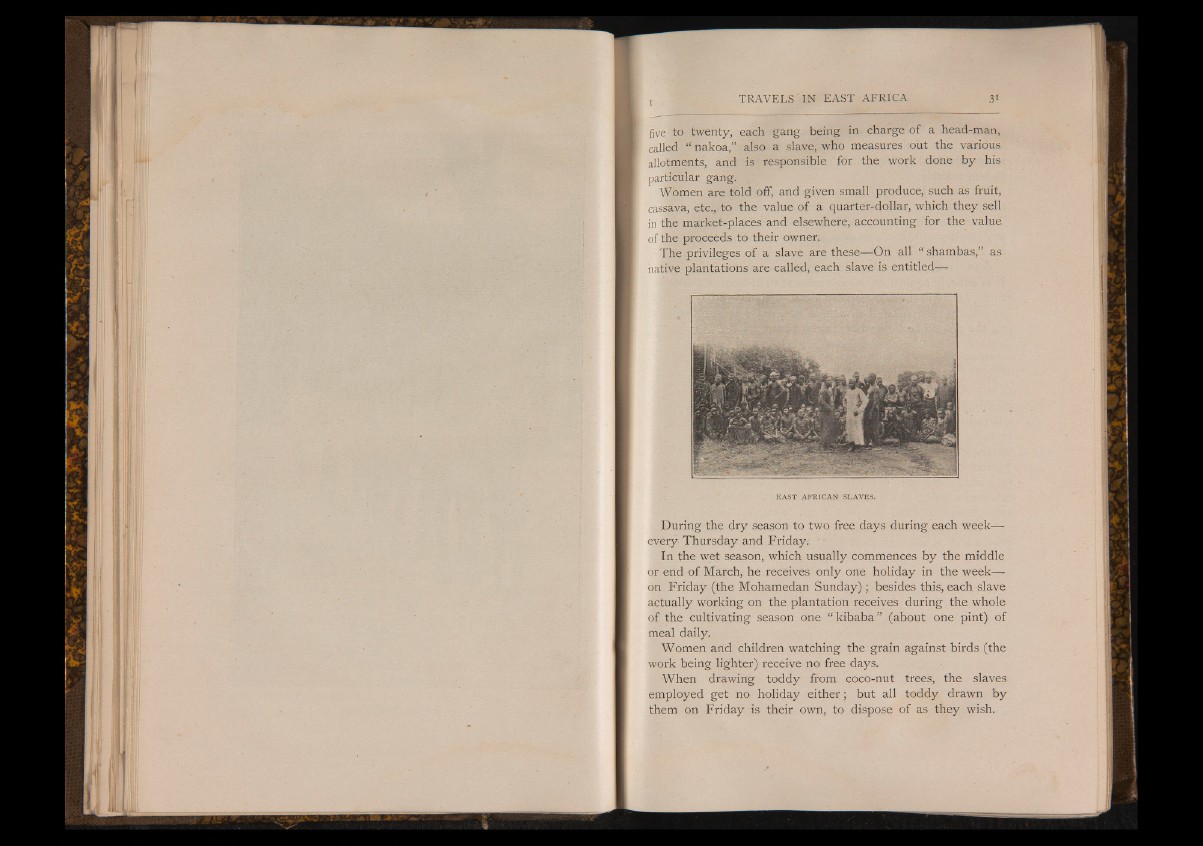
five to twenty, each gang being in charge of a head-man,
called “ nakoa,” also a slave, who measures out the various
allotments, and is responsible for the work done by his
particular gang.
Women are told off, and given small produce, such as fruit,
cassava, etc., to the value of a quarter-dollar, which they sell
in the market-places and elsewhere, accounting for the value
of the proceeds to their owner.
The privileges of a slave are these— On all “ shambas,” as
native plantations are called, each slave is entitled—
EAST AFRICAN SLAVES.
During the dry season to two free days during each week—
every Thursday and Friday,
In the wet season, which usually commences by the middle
or end of March, he receives only one holiday in the week—
on Friday (the Mohamedan Sunday); besides this, each slave
actually working on the plantation receives during the whole
of the cultivating season one “ kibaba” (about one pint) of
meal daily.
Women and children watching the grain against birds (the
work being lighter) receive no free days.
When drawing toddy from coco-nut trees, the slaves
employed get no holiday either; but all toddy drawn by
them on Friday is their own, to dispose of as they wish.